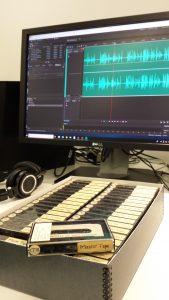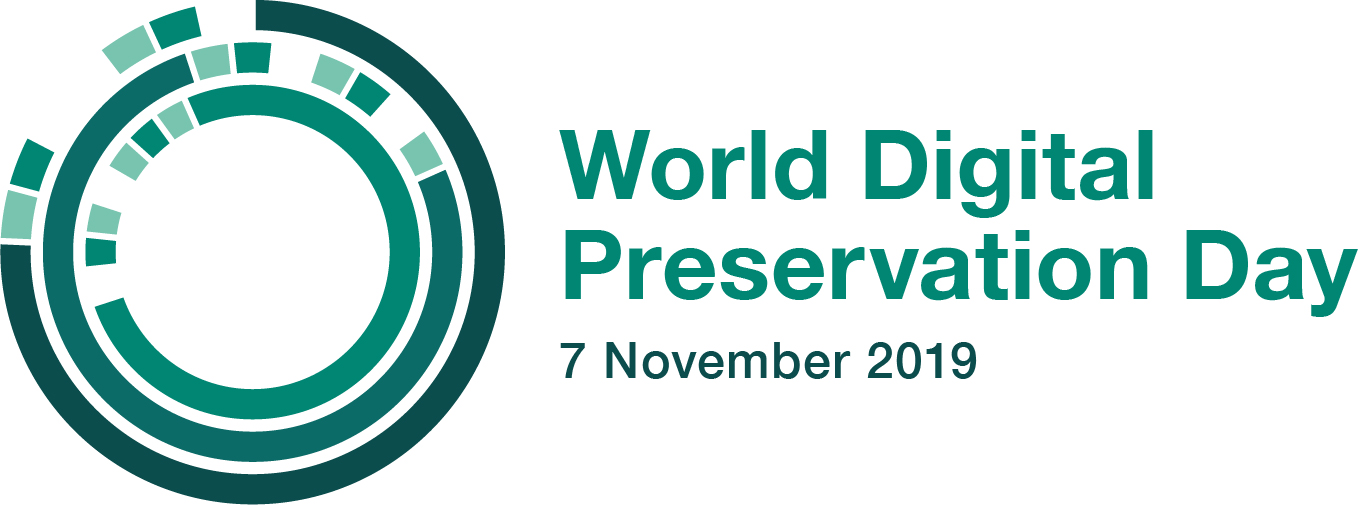Thursday 7th November is World Digital Preservation Day, an initiative launched by the Digital Preservation Coalition in 2017 with the aim to “create greater awareness of digital preservation that will translate into a wider understanding which permeates all aspects of society”.
Digital preservation in simple terms can be defined as a series of activities that are carried out in order to ensure objects (such as datasets, analogue and digital audio/video, images, text documents, etc) remain accessible and usable now and in future.
To celebrate this year we’ve decided to focus on the work we’ve been doing with the University Archive’s Open Lectures collection.
The Open Lectures were an early initiative of the University, first starting in 1967 as part of its commitment to the local community, and are still going strong today. To date there have been over 850 lectures. Lectures were (and remain) free to attend and covered a wide range of subjects, everything from the literature of the First World War to the Neapolitan mafia. The lectures have attracted many of the leading figures of politics, literature, journalism, philosophy and the arts as speakers, including Edmund Blunden, William Golding, Patrick Moore, Shirley Williams, Kate Adie and Antony Beevor. Up until recently these analogue audio recordings have only been available on cassette tape and are at risk of becoming inaccessible due to this format’s likelihood of obsolescence.
Over the last few months our Digital Imaging Assistant, Alex, has been busy digitising these tapes and has so far digitised 160 tapes from the collection. Digitisation can be a complicated process and involves a number of stages to complete.
Pre-digitisation the tapes must be inspected and evaluated to:
- Check there are no signs of damage or degradation
- Ensure the pressure pad within the cassette housing is present and positioned correctly
- Determine if the tape winds slow or appears to be problematic in any way by ‘exercising’ it. This is done by fast forwarding/rewinding the tape several times.
Any issues discovered during this stage of the process will be addressed wherever possible before moving on to the next stage. Once we are satisfied that the tape is fit to process, we can move on to the actual digitisation. We use a specific combination of hardware and software to carry out the audio digitisation process. This is carried out in ‘real time’, meaning that it takes the same amount of time to digitise the tape as it would do to listen through it at normal speed. The digital recording is captured in a Broadcast Wave format (.wav) and metadata is embedded in to the resulting file. This metadata records information about the recorded content itself as well as the digitisation process and how it was performed.
Once the digitisation process is complete and we have a digital master copy of the recording, the cassette tape is returned to our archival storage facilities where it will remain. The digital master copy, alongside an mp3 access copy, will be saved in our secure digital storage space, and will be preserved to ensure that it can be accessed for information and research purposes for our future users.
This is a clip from “Art and politics: Picasso’s ‘Guernica’, a lecture given by Toni Del Renzio at the University of Kent in 1987. Toni was an artist and writer of Italian and Russian descent, who was also leader of the British Surrealist Group for some time. He met Picasso in 1938 whilst he was in Paris, and speaks about one of Picasso’s best known works, ‘Guernica’, in this lecture.
If you would like to have a look at what we have in our open lectures collection, just search for ‘open lecture’ on Librarysearch. To listen to any of the recordings please get in touch at specialcollections@kent.ac.uk.
Our thanks go to the Del Renzio family for granting permission to share this audio recording.

